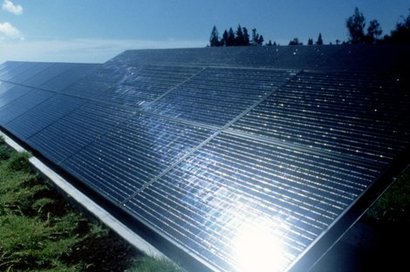
Low wind generation and increased demand along with the highest gas prices for two years drove this record solar generation. Ongoing global geopolitical tensions along with outages in Norway has kept the gas prices rising, showing that Europe urgently needs a cleaner and more flexible power system.
Sunnier days, along with increased capacity, meant that solar came to the rescue of Europe’s power prices. 65 GW of solar was added in 2024 alone, meaning that the share of renewables in the European power mix was 15 percent higher in March compared to February, while still 1 percent lower than in March 2024. A few French reactors coming online meant that nuclear power also increased its share of power production, contributing to lower power prices.
However, despite these gains, the average day-ahead electricity price in the first quarter (Q1) of 2025 remained 51 percent higher than the Q1 2024 average. This surge was primarily driven by higher average gas prices, which grew by 33 percent over the same period.
As power demand rose in January and February, low wind availability, limited storage and flexibility sources forced a heavier reliance on gas to supply electricity, thus driving up prices. While fossil fuel generation dropped by 15 percent month-on-month, it remained 16 percent higher than in March 2024, signalling that Europe still relies on gas and coal during periods of high demand.
“Europe remains too vulnerable to fossil fuel price fluctuations, especially during periods of high electricity demand” said Kristian Ruby, Secretary General of Eurelectric. “To counter this, we must speed up the roll-out of demand side response and storage technologies and further incentivise the use of long-term power purchase agreements.”
Capacity mechanisms and flexibility supporting schemes can incentivise the necessary flexibility investments, when price signals alone are not enough. Yet, their use and design differ across Europe, making their implementation more complex. Developing guidelines at EU level can help foster their harmonisation and cross-border integration, provided they remain market based and open to all technologies.
Flexibility is also crucial when it comes to balancing more frequent negative prices. Notably, as solar generation rose in March, negative prices made a comeback, particularly in Nordic and Western European countries. In Sweden, for example, negative prices were registered 88 times, 55 times in Poland.
Eurelectric calls for a swift implementation of the electricity market reform to better incentivise flexibility, ensure long-term price stability and wean Europe’s energy system off high-risk dependencies.
For additional information:

